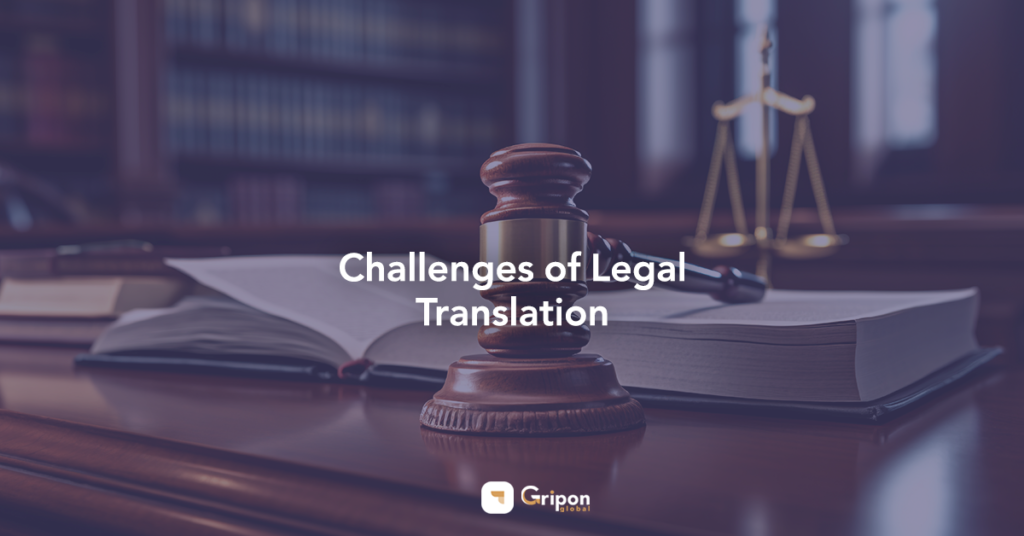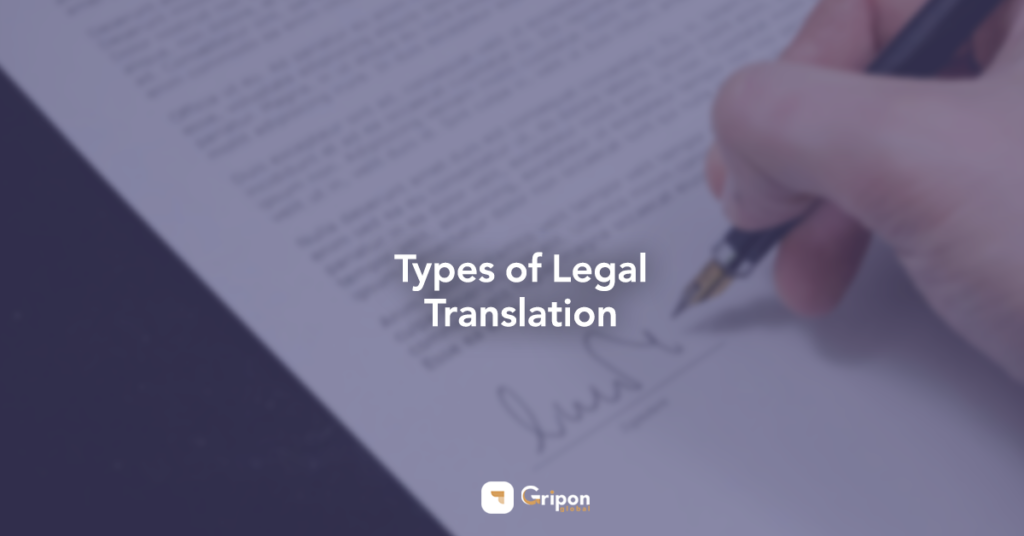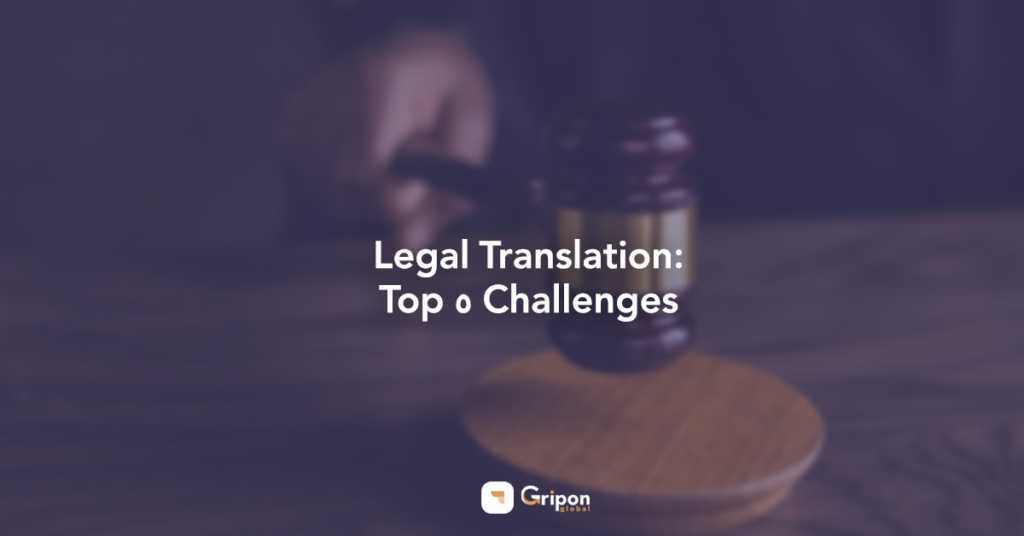
Our world is a highly regulated one, with laws surrounding every aspect of our lives. The legal domain overlaps with our day-to-day life. And that’s why legal translation is one of the most required fields in the translation sector.
Whether it’s something personal such as marriage certificates and travel documents or more professional such as transcripts, financial statements, contracts, patents, and copyrights docs, we all need legal translation at one point or another.
Because legal translation is this important, we want you to know its intricate details. So, let’s dive into the world of legal translation, shall we?
Table of Contents
ToggleLegal Translation: What Is It?
Legal translation is an intricate and specialized discipline within the broader field of translation, dedicated to the translation of legal documents from one language to another while maintaining accuracy, terminology, and legal nuances.
In the realm of legal matters, precision in translation is of utmost importance, as even a minor error or misunderstanding can have huge legal ramifications. Consider, for instance, the potential ramifications of a translation flaw in a warranty document—it could lead to financial losses and tarnish your reputation among customers.
The scope of legal translation is vast, encompassing various subfields, each with its own set of rules and regulations. The need for legal translation services is indispensable, given the myriad scenarios in which such expertise proves invaluable.
Take, for instance, a scenario where you may believe your business doesn’t require legal translation services because it doesn’t operate as a legal firm. However, envision a global expansion strategy where you decide to launch a multilingual website. In this case, the translation of copyrights, trademarks, terms and conditions, etc., becomes an integral part of legal translation.
Furthermore, for businesses expanding globally, adherence to the laws and regulations of the target country is a must. This involves providing legal documentation, financial records, and complying with a host of legal regulations, all of which necessitate professional legal translation services.
In simpler terms, if your business operates on a global scale, legal translation is an ever-present necessity, extending its relevance from e-commerce ventures to mergers and the hiring of foreign employees.
Given the high stakes in these situations, involving financial investments and business connections, the cost of misunderstandings is huge.
Given the diverse nature of legal documents across sectors, there are various types of legal translation, each tailored to the specific characteristics of the documents involved.
Let’s delve into these categories.

Document Translation
- Contracts: Business agreements, leases, and sales contracts.
- Wills and Testaments: Legal documents governing asset distribution and inheritance.
- Employment Contracts: Agreements specifying terms, benefits, and responsibilities for international employees.
Litigation and Court Translation
- Court Documents: Pleadings, judgments, summonses, and legal documents related to court proceedings.
- Depositions: Statements and testimony from witnesses for use in court cases.
- Legal Opinions: Arguments and briefs presented to the court.
Intellectual Property Translation
- Patents: Applications, claims, and related documents for the protection of inventions.
- Trademarks: Registration documents and materials for brand protection.
- Copyright: Agreements and disputes involving intellectual property rights.
Corporate and Business Translation
- Corporate Bylaws: Bylaws and articles of incorporation for multinational companies.
- Financial Documents: Statements, annual reports, and audit reports.
- Mergers and Acquisitions: Documents involved in corporate restructuring.
Immigration and Visa Translation
- Visa and Immigration Documents: Passports, visas, immigration forms, and citizenship applications.
- Asylum and Refugee Documents: Documents for individuals seeking asylum or refugee status.
Real Estate and Property Translation
- Real Estate Contracts: Agreements for property sale, lease, and property titles.
- Zoning and Land Use Documents: Papers related to land development and zoning regulations.
Life Sciences Translation
- Pharmaceutical and Medical: Documents concerning drug approvals, clinical trials, and medical device regulations.
Legal Literature Translation
- Legal Texts and Treatises: Textbooks, academic articles, and legal commentaries for educational and research purposes.
- International Conventions: Agreements and treaties for legal and diplomatic purposes.
Notarized and Certified Translation
- Official Documents: Notarized or certified legal translations for birth certificates, marriage certificates, diplomas, and other official documents required for legal or administrative purposes.

Challenges of Legal Translation
Legal translation is a complex and nuanced field that requires a deep understanding not only of the source and target languages but also of the legal systems and cultures involved.
As legal matters become increasingly globalized, the demand for accurate and reliable legal translation services has surged. However, this surge comes with its own set of challenges that legal translators must learn to navigate.
Let’s explore some of the challenges, shall we?
1. Accuracy
Legal documents are known for their precision and specificity. The slightest mistranslation or ambiguity can lead to serious consequences. Legal translators must navigate through complex terminologies and ensure that the translated text conveys the intended meaning without any loss of legal nuance, maintaining utmost accuracy.
This requires an in-depth understanding of both legal systems involved, as well as the cultural context in which the legal documents are intended to be used.
2. Cultural Nuances
The legal language is deeply rooted in the cultural and historical context of a particular jurisdiction. Translators need to be aware of these cultural nuances to accurately convey legal concepts. A term that holds a specific legal meaning in one jurisdiction may not have an equivalent term in another, leading to challenges in finding suitable translations that capture the legal essence without distorting the original meaning.
3. Divergent Legal Systems
Legal systems vary significantly from one country to another. The common law system, prevalent in countries like the United States and the United Kingdom, differs substantially from the civil law system adopted by many European countries, for example.
Translators must be well-versed in the legal principles and structures of both the source and target legal systems to ensure accurate translations.
Bridging the gap between these divergent legal frameworks can often be a very challenging task.
4. Changes and Updates in Laws
Legal systems are dynamic and subject to frequent changes and updates. Keeping abreast of these changes is crucial for legal translators. Failure to translate legal texts in line with the most recent legal amendments can result in serious consequences.
This challenge emphasizes the importance of continuous professional development for legal translators to stay informed about the latest developments in both the source and target legal systems.
5. Confidentiality and Security
Legal documents often contain sensitive and confidential information. Legal translators need to uphold strict confidentiality and security measures to protect the privacy of the parties involved. This challenge becomes even more pronounced in an era of digital communication, where the risk of data breaches and unauthorized access is a constant concern.